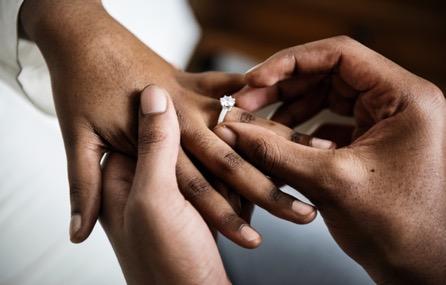
Comparing Nigeria and Ghana: Which Country Is Richer?
Comparing Nigeria and Ghana: Which Country Is Richer?
Nigeria and Ghana are two of the most populous countries in Africa. They are both located on the Atlantic coast, Nigeria to the west and Ghana to the east. Both countries have abundant natural resources such as oil, diamonds, gold, cocoa beans and more. Nigeria is considered one of the wealthiest African nations with an economy valued at $568 billion dollars according to The World Factbook by CIA (Central Intelligence Agency). This article will compare these two countries based on their GDP per capita amongst other factors that contribute to a country's wealth.
Section 1: Nigeria Vs Ghana
GDP Per Capita (US$)
Both Nigeria and Ghana are large economies. The Nigerian GDP per capita is $1,720 while the Ghanaian GDP per capita is $1,900. As a result, the GDP per capita in Nigeria is estimated to be 17.5 times greater than Ghana's. Nigeria, however, is more developed than Ghana with a higher GDP in a wide variety of fields including Health, Education and Agriculture. Ghana is a middle-income country with a GDP of $322 billion, which is 2.5 times that of Nigeria.
GDP (2013 estimate)
Nigeria: $5,780 Billion
Ghana: $322 Billion
GDP Distribution
Nigeria: 48.4% Agriculture, 30.3% Industry, 12.5% Government, 2.6% Service, and 3.7% Other, 1.5% Unallocated
Ghana: 48.1% Agriculture, 17.6% Industry, 7.9% Government, 1.3% Service, and 1.7% Other, 0.
GDP per capita
This is the highest GDP per capita in the world. This is the total value of the country's economy divided by its population. In 2016 Nigeria's GDP per capita was valued at $5,524 according to The World Factbook. Ghana's GDP per capita in 2016 was worth $1,512.
GDP Growth
An indicator of economic growth is GDP growth per capita. GDP Growth (per capita) is calculated by dividing GDP growth by population. It is normally expressed as a percentage. In 2016, Nigeria's GDP growth was estimated at 6.5%, therefore an average of $2,161 per capita. Ghana's GDP growth was estimated at 8.6% per capita, therefore an average of $1,372 per capita.
Trying to compare the two nations directly can be misleading because they are quite different.
Economic growth rate
Nigeria's per capita GDP is $3, 759 compared to Ghana's $1, 378 according to IMF (International Monetary Fund). It's clear that the Nigerian economy has a higher GDP growth rate. The estimated GDP growth rate of Nigeria is 1.7% per year compared to Ghana's 0.7% per year. According to the World Bank, Nigeria was one of the fastest-growing economies of the world with an estimated GDP growth rate of 1.7% in 2015.
National expenditure and percentage of GDP
According to IMF, Nigeria's social protection spending as percentage of GDP is 40.4%, while Ghana has 31.3%. It's very clear that the percentage of Ghana's social expenditure is more than Nigeria. Nigeria is considered to be one of the least prudent in terms of expenditure on social safety net.
Unemployment rate
Nigeria:
Nigeria has a high unemployment rate. According to USA Today, Nigeria has the 12th highest unemployment rate in the world. USA Today also reports that Nigeria is the most dangerous place to be a woman in the world. Most experts attribute this to the lack of education and job opportunities women have. It is especially high in rural areas where women face some of the highest rates of poverty and teenage pregnancy rates.
Ghana:
Ghana has a relatively low unemployment rate as most of the jobs are provided by the government. According to Ghana’s 2017 official statistics from the Ghana Statistical Service, almost 76% of the population is under the age of 24. In the year 2016, a total of 4,791,000 people were employed. In 2011, just 3,175,000 people were employed.
Life expectancy
Each country has different life expectancies, but both Nigeria and Ghana rank high on the list. In 1960, Nigeria had the largest life expectancy at birth at 70.7 years. Ghana ranked second at 71.6. By 2010, Ghana had the largest increase with a jump of almost 3 years to 69.2 years. In 2017, Nigeria and Ghana were ranked 8th and 10th respectively.
See also: The 8 Best Companies to Work For in Africa
Gender Ratio
Ghana is a female dominated country. According to Nigeria Watch and the World Bank, the total fertility rate for the country is 3.11 children. Although the fertility rate is still below 4 children per woman, it is well above the replacement rate. This means that women are having fewer children than if they had two children.
Conclusion
In order to determine which country has the most wealth per capita, it is necessary to first determine which is more important: GDP or GDP per capita. GDP measures a nation's total production. It is made up of factors such as GDP for the agriculture sector, GDP for the manufacturing sector, and GDP for the mining sector. GDP per capita, however, measures how much a country's income per capita changes over time. These two factors are not necessarily directly related because they also consider several other economic factors which affect the economy, such as the inflation rate, unemployment rate, wealth generated through a nation's exports, etc. It is safe to say that the GDP per capita is more important when compared to the GDP.














